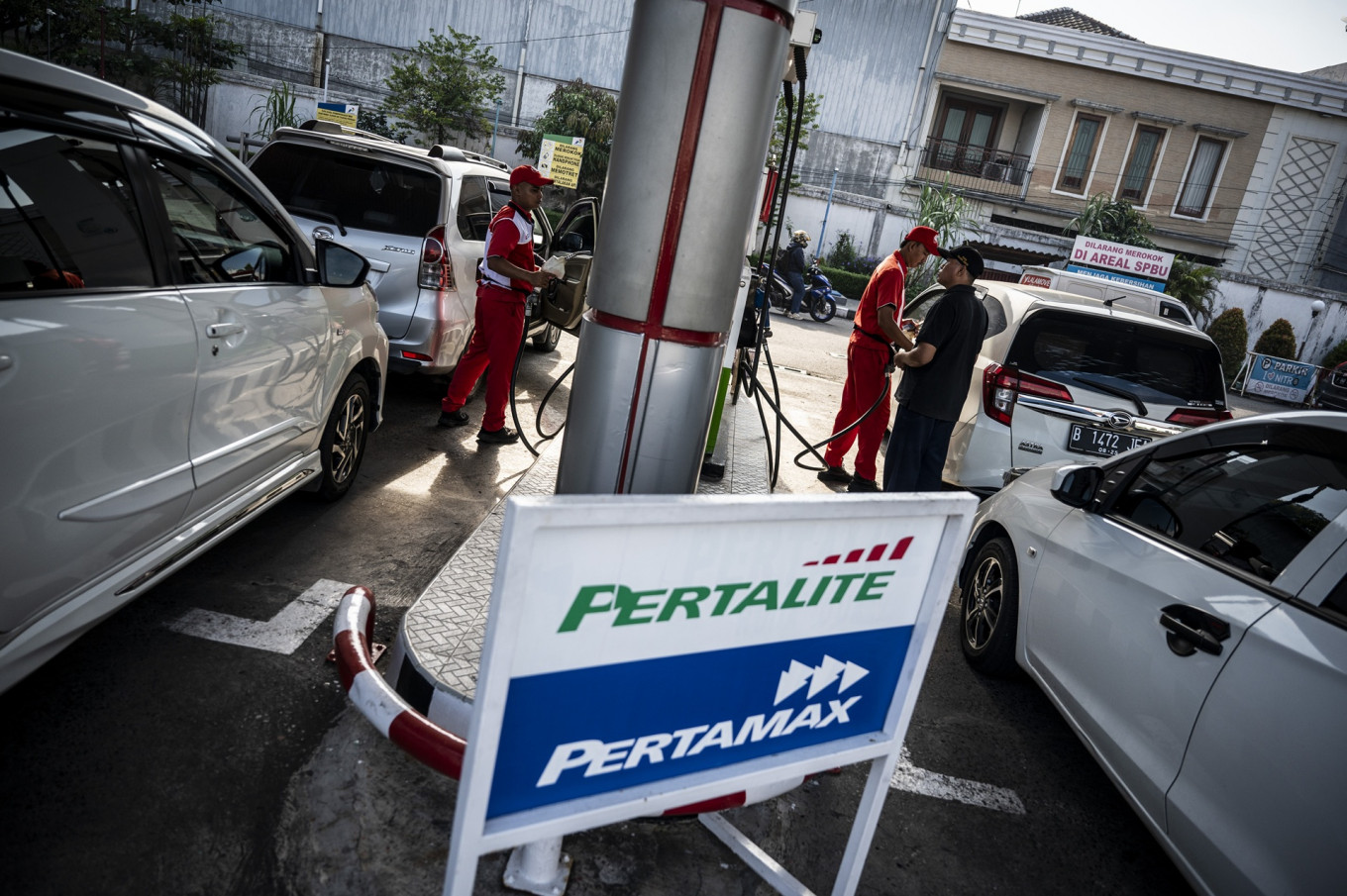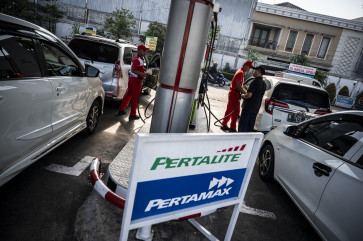Popular Reads
Top Results
Can't find what you're looking for?
View all search resultsPopular Reads
Top Results
Can't find what you're looking for?
View all search resultsFrom loopholes to accountability: Ensuring fuel quality
The history of fuel governance in Indonesia indicates that transparency and accountability challenges are not new; rather, they are recurring issues.
Change text size
Gift Premium Articles
to Anyone
T
he alleged irregularities in the management of fuel by state-owned oil company Pertamina subsidiary PT Pertamina Patra Niaga have once again highlighted the weaknesses in Indonesia's fuel supply chain oversight and transparency. The Attorney General’s Office has named suspects in a corruption case involving the management of crude oil and refinery products, with allegations of manipulation in fuel procurement and distribution, including the blending of RON 90 (Pertalite) into RON 92 (Pertamax).
In this case, the blending process is regarded as adulteration because it did not comply with established specifications. Blending refers to the mixing of substances within permissible limits, while adulteration involves unauthorized mixing that violates standards and constitutes fraud.
This practice has been deemed non-compliant with specifications and is suspected of causing state losses amounting to Rp 193.7 trillion (US$12 billion). This raises questions about the effectiveness of Indonesia’s fuel purity guarantee system. If the final specifications do not meet the required standards, it qualifies as adulteration.
The history of fuel governance in Indonesia indicates that transparency and accountability challenges are not new; rather, they are recurring issues.
In the 1970s, Pertamina wielded significant economic power but faced financial management problems. House of Representatives Commission IV overseeing mining at the time revealed a lack of transparency in company profit reporting, an uncoordinated accounting system and unrecorded contractor payments to the state treasury. An audit by Arthur Young even found six separate accounting systems, creating inefficiencies and potential misconduct.
Despite various post-1998 reforms and regulations aimed at improving transparency and accountability, fuel governance issues persist. This suggests that structural and regulatory changes alone are insufficient without strict law enforcement, genuine transparency and a strong culture of integrity in governance.
This indicates that Indonesia’s fuel quality monitoring system still has numerous structural weaknesses. A study by Hirota and Kashima in 2020 showed that Indonesia's fuel quality monitoring (FQM) system requires structural improvements and lags far behind those of Malaysia and Vietnam. Fuel quality testing in Indonesia only covers 150–200 samples per year, significantly lower than Malaysia’s 3,000 annual samples at fuel stations.



















